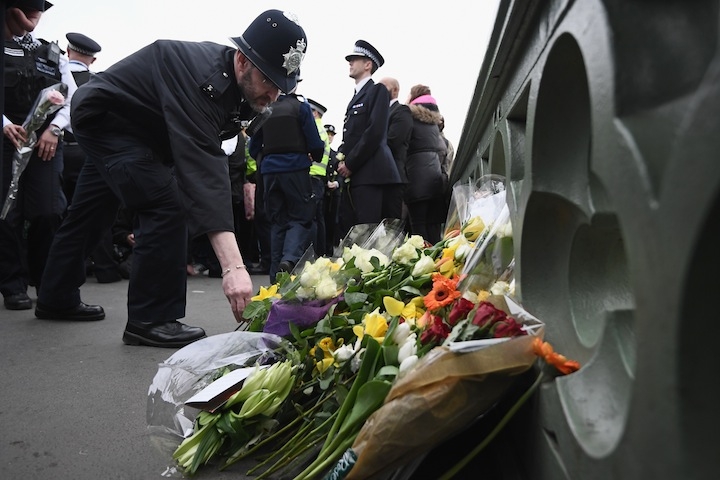‘On Friday noon, July the 20th, 1714,’ begins the small, perfect 20th-century novel The Bridge of San Luis Rey, ‘the finest bridge in all Peru broke and precipitated five travellers into the gulf below.’ In the coincidence of crossing the bridge at the same time, explains the writer, Thornton Wilder, these five seemed to have been assembled by pure chance.
Or had they? He entitles this first chapter ‘Perhaps An Accident’. He spends the rest of his book tracing the lives of each until the moment when, in a twang of rope, fate hurled all together into the abyss. Thus is the reader’s interest engaged for the human histories that unfold. But Wilder, an American Christian humanist, falters in his rationalism. His concluding chapter is entitled ‘Perhaps An Intention’.
In fact no evidence of an intention, let alone an Intention, is adduced, and the novel stands as a gem of modern literature without need of any twist of divine intervention. But Wilder just couldn’t help speculating, and the reader cannot help searching.
Searching for a hidden meaning comes so naturally to us. It’s one of the hardest things in life, but especially a journalist’s life, to accept that some big stories may have no meaning. Tremendous events may carry no tremendous implications, but man is an intelligent animal who must always seek to make sense of life’s mess. We forever strain to join the dots; and often they do join; and sometimes joining them early proves a lifesaver.
But sometimes they are just dots. What happened at the Palace of Westminster last week may prove to be of this kind. The knife-wielding Khalid Masood may prove to have been part of no great plan, the agent of no malign external power, a pawn in nobody’s game. Perhaps he was only a wretched, demented fool with a crazy idea of God’s will. He may just — in his twisted way — have been trying to make sense of life. If so, we pile error upon error by trying to make sense of him.
But bad things can be hard to bear when we cannot make sense of them. We search for clues as though every strange event were a riddle with the answer written upside down at the bottom of the page. We lionise, sometimes to our ruin, individuals who offer overarching explanations.
Or else, despairing of cracking the code, we resign ourselves to the supposition that there’s surely an answer but we are just not clever enough to know it. There can hardly be a village graveyard in England without a headstone etched with a bewildered ‘Thy Will be Done’. God has moved in a mysterious way, but undoubtedly He has moved.
In 2013, when in Woolwich two men, Michael Adebolajo and Michael Adebowale, hacked to death the blameless Fusilier Lee Rigby, there was much overheated talk about possible links with possible Islamic fundamentalist movements or websites. I, however, was not alone in expressing scepticism that these two evidently unhinged individuals could be operating under any kind of direction. And so it seems to have turned out. There was no serious network or plan.
Last year, when the MP Jo Cox was murdered by a loner who was ‘linked to’ extremist right-wing thinking and haters of the European Union, an appetite flickered among some Remain campaigners to link her death to the animosities stirred by the Leave campaign. Again, I differed, warning against ‘linking deranged minds to whatever cause they settle on’. Like those little squares of treated fabric you can place with your non-colourfast wash (I said), unstable personalities will tend to blot up whatever extreme passions are doing the rounds. An unbalanced mind keeps open house for radicalisation, the radicalisation being more consequence than cause of the imbalance.
Like al-Qaeda before it, so-called Islamic State does exist and is extremely dangerous. Thus far the damage and the death toll have been overwhelmingly in the Middle East; and Isis’s most realistic targets must be distant from our own shores. But that’s probably partly due to the work of our own intelligence services. We should not cite their success as a reason for thinking the threat of major disruption isn’t there.
Minor disruption, though, is different. No surveillance can eliminate the threat from the rogue individual who goes berserk. Islamist terrorist organisations will always be quick to claim any solo operator as their own and there will often be evidence he was ‘inspired by’ or even (through electronic media) ‘linked to’ the fundamentalist cause. ‘Yes, he was one of ours,’ they cry. Journalists and politicians play straight into their hands if we take up that cry.
Organisations like Islamic State or al-Qaeda do have a strategy that goes beyond territorial gains in the Middle East: to shake western societies to their foundations by polarising the large groups of Muslims who live here, cleaving their allegiance away from the western societies of which they are a part, and (as the fundamentalist would see it) bringing home to them that they do not ‘belong’ in tolerant, permissive, liberal cultures like our own.
Again, we play straight into the hands of the extremist strategy if we respond to atrocities like that at Westminster by associating one demented knifeman with a whole section of our population. I’ve been dismayed to see the barrage of immediate reaction on Twitter, and beneath online reports and commentary, perpetuating an idea that Muslims — all Muslims — do not belong here. British Muslims will be viewing the murderer’s actions with just the same bewildered horror as the rest of us. They do belong here. Masood, like Jo Cox’s murderer, does not.
It’s a pity an old second world war mantra has been cheapened by its modern popularisation in a range of humorous cards, because there can be no better advice now, at Westminster and beyond, than that we should keep calm and carry on.







Comments